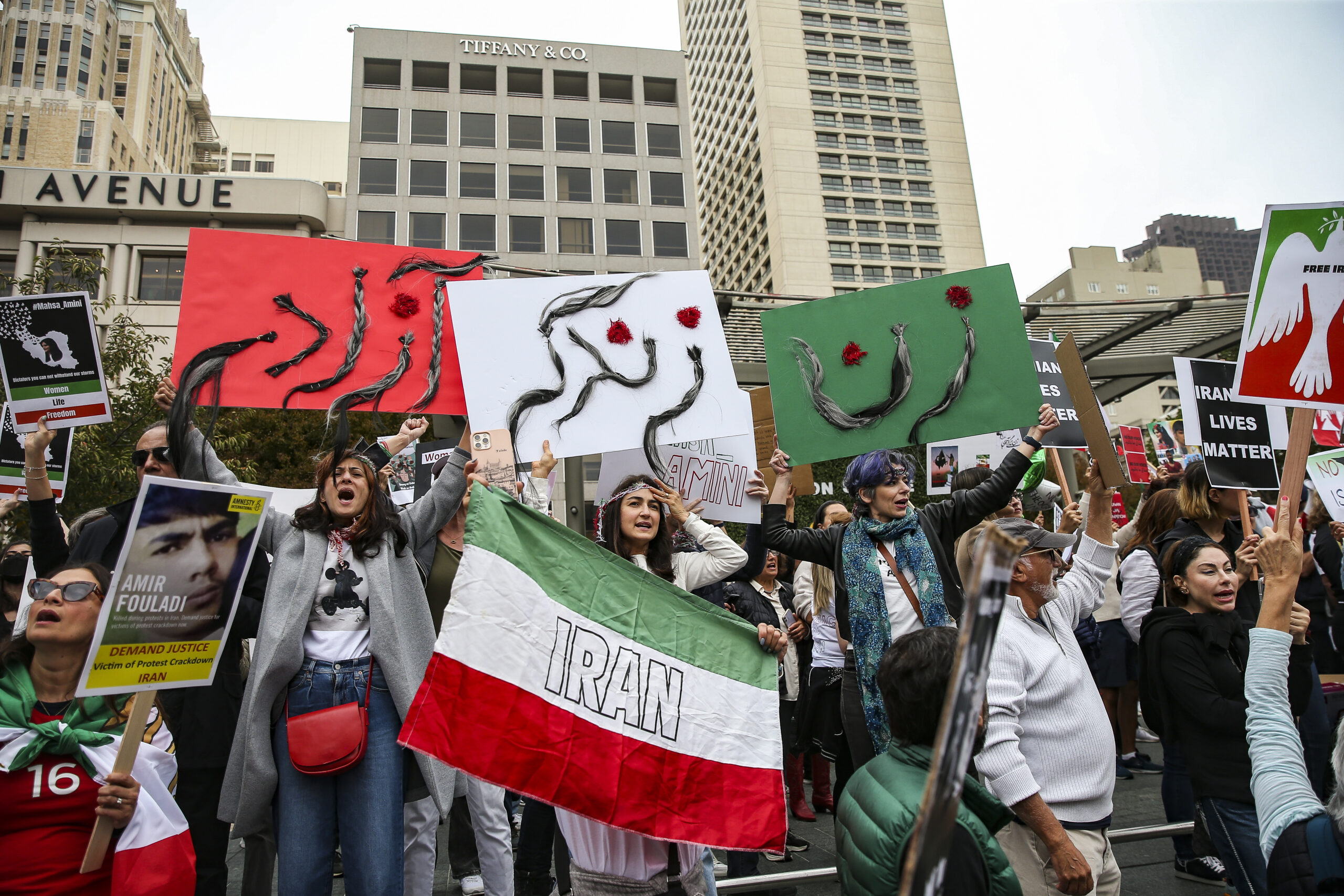Resolutions accomplish little in the way of policy.
But San Francisco’s symbolic show of solidarity with the Iranian uprising adds to a growing chorus of support for protesters halfway around the world to soldier on.
It came in a vote Tuesday by the Board of Supervisors, which unanimously backed a resolution commending the people of Iran for protests going on since September and condemning their government for responding with repression and human rights abuses.
Conservative estimates by the United Nations tally at least 14,000 arrests from the protests and 300 deaths, including 40 children.
SF Supervisor Ahsha Safaí, who was born in Iran, introduced the resolution.
“We’ve heard over and over again that the protesters are looking for beacons of light […] that they’re not dying in vain, they’re not protesting in vain,” Safaí told The Standard. “It’s our attempt to show some solidarity and encouragement in any way we can that this is happening, and the world is watching.”
Since the September death of Jina “Mahsa” Amini—a 22-year-old Kurdish Iranian woman—the country has convulsed with people taking to the streets, including teen girls in classrooms. Corresponding rallies have cropped up in the Bay Area just about every week since then.
San Franciscans have shown solidarity in other ways, like a cyclist who mapped pro-protest slogans in Persian. Meanwhile, someone painted a house in the Marina red and green with the movement’s rallying cry “Women, Life, Freedom,” which comes from a Kurdish independence slogan.
Berkeley and Oakland passed similar resolutions in October honoring protesters and political prisoners. Though symbolic, supporters say the resolutions are important reminders that people a world away are still paying attention to what’s happening in Iran.
High-profile attention on political prisoners, like journalists Niloofar Hamedi and Elaheh Mohammadi, who brought Amini’s story to light, has the potential to lead to their freedom or to prevent their execution.
San Francisco’s resolution “doesn’t have a political impact, necessarily, but it has a social impact,” said Mahsa Hakimi, an Iranian-born lawyer who sits on the San Francisco Arts Commission. “As long as these issues stay relevant, the pressure is on the international institutions and politicians who can actually have an impact.”
International pressure culminated last week when the United Nations Human Rights Council overwhelmingly voted to investigate human rights abuses in response to the protests. San Francisco’s resolution also called for a trusted international body to thoroughly investigate Amini’s death.
As protests in Iran evolve into many forms, including strikes and couples kissing in public as a rebuke to the many banned freedoms, supportive rallies march on in San Francisco.
On Wednesday, Bay Area residents protested in front of UNICEF’s San Francisco office at 101 Montgomery St. to demand action over the growing number of children killed in the uprising. University of California Berkeley and University of California Davis students also joined in Wednesday as part of college protests worldwide.
There will be another protest on Saturday at Snow Park near Lake Merritt in Oakland starting at 2 p.m., said Yasaman Afshar, an Iranian-born organizer with BayArea4Iran.
“The momentum is still very high, which is amazing,” said Afshar. “It’s overwhelming how much support we’ve been getting. There’s no stopping us now.”
